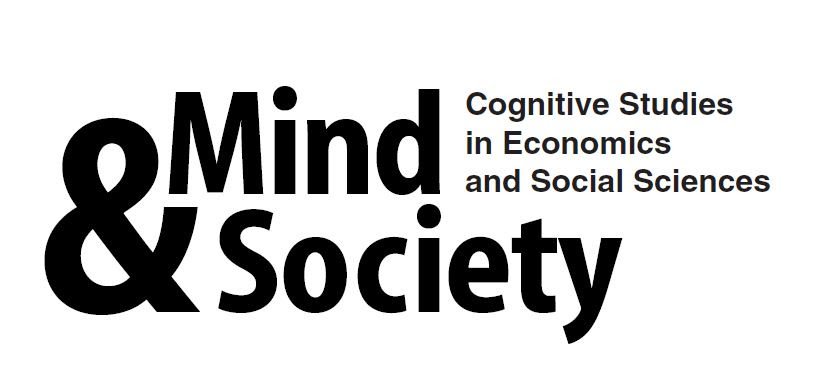The Digital World, Cognition and Behaviour – Call for Papers
We invite contributions to a Special issue of

Guest editors of the Special Issue:
- Gerd Gigerenzer (Harding Center for Risk Literacy,
Max Planck Institute for Human Development, Berlin) - Konstantinos Katsikopoulos (University of Southampton)
- Marco Fasoli (Università di Milano-Bicocca)
Overview
In recent years, digital technologies have become incredibly pervasive in our daily life. This process has brought about many advantages, but it has also changed numerous human cognitive practices in different ways, leading to the rise of new problems and challenges. For example, in the wake of an ever-growing presence of digital technologies we are constantly called to manage a staggering amount of information, communications and notifications (the so-called “information overload”) and we keep being interrupted, dividing our attention across several tasks at the same time. By providing new ways of storing and retrieving information, digital technologies have modified the function and the role of human memory. In general, digital technologies have changed the role of many cognitive abilities in our daily life, making some of them more necessary while rendering others seemingly obsolete. One of the crucial abilities required by the digital world is the ability to evaluate information and to discriminate between real and fake news online.
Against this background, cognitive and behavioural scientists are called to help policy-makers understand how digital technologies are reshaping our minds. In this sense, it becomes necessary to understand which cognitive abilities would be required in the digital world to cope with information overload or to debunk fake news, and how we can facilitate the development of such abilities among internet users. Furthermore, there is the need to understand which heuristics and biases occur when we navigate the internet, as well as how our behaviour could be nudged through big data, for the purpose of establishing some safeguards for modern societies against any improper uses of such data.
Main Special Issue Topics
- Fake news, epistemic attitudes, and cognitive abilities.
- Heuristics, ecological rationality and digital decision making.
- Biases and heuristics in the digital world.
- Big data and their cognitive, epistemic, and ethical implications.
- The Behavioural sciences in E-Commerce and Advertising.
- The digital nudging and Democracy.
- Attention, task switching, and multitasking.
- Reading and digital reading in the digital era.
- Digital well-being: theoretical perspectives and empirical insights.
- Cognitive artefacts, cognitive techniques, and digital technologies.
- Cognitive affordances and cognitive properties of digital technologies.
- Digital and cognitive persuasion in gamification: ethical issues.
- Social networks, social comparison, and digital communication.
- Digital stress and information overload.
- Emotions and emotional intelligence in the digital world.
- The design of addiction of digital technologies.
- Fintech, Bot and Artificial Intelligence in Digital Financial Decision making.
- Cybersecurity.
If your work coincides with our theme, please submit the paper sending it to the email editorialsecretary.mindandsociety@herbertsimonsociety.org for evaluation.

